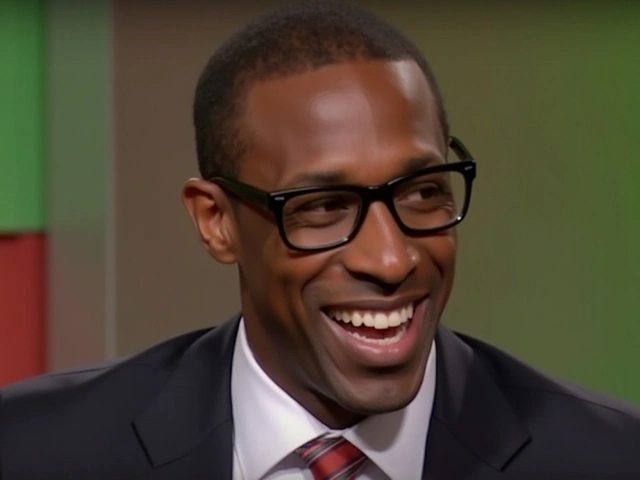The recent vote by the UN General Assembly marks an evocative moment in international diplomacy with its strong endorsement for advancing Palestine's status within the United Nations. The session, held under emergency circumstances, reflects a vigorous discussion on the role and recognition of Palestine on a global platform. As the world watches, the complexities of international law, politics, and human rights converge at the heart of this decision.
The Resolution's Implications
The draft resolution passed by the General Assembly advocates powerfully for Palestine’s full membership in the UN. An overwhelming majority of states, 143 in total, voted in favor of the resolution. This affirmative action sends a resounding message of broad international support for Palestine’s enhanced status. However, the path forward is nuanced with geopolitical intricacies, particularly considering the opposition from nine countries and the 25 abstentions that reflect persisting global divisions on this sensitive issue.
Enhanced Participation Rights for Palestine
Beginning in September 2024, during the 79th session, Palestine will enjoy enhanced participation rights at the UN. These rights include being seated among the member states, the ability to make statements, proposing amendments, and requesting agenda items. This upgrade in participation does not equate to full membership but significantly boosts Palestine's voice and presence on the international stage. These enhanced rights could shift the dynamics of Middle Eastern policies discussed at the UN and offer Palestine an elevated platform to express its perspectives and concerns.
Challenges Ahead: The Role of the Security Council
Despite the General Assembly’s strong recommendation, the ultimate decision for full UN membership for Palestine sits with the Security Council. Historically, the United States, one of the five permanent members of the Council, has exercised its veto power against such a move, citing concerns over comprehensive peace negotiations. The recurring use of veto power reignites debates on the effectiveness and fairness of the Security Council’s structure, where a single country's veto can override the overwhelming majority of the international community’s will.
Reaction from Israel and the International Community
Israel's UN ambassador, Gilad Erdan, openly criticized the resolution, labeling it 'destructive' and a misinterpretation of the UN Charter’s principles. This stance from Israel underscores the deep-seated tensions and divergent perspectives regarding Palestine’s statehood and participation rights. The decision has not only strained relations but prompted broader discussions regarding the need for reform within the UN system itself.
Ongoing Tensions in the Region
The backdrop to this significant vote is the ongoing unrest and escalating tensions in Gaza. Civilians are caught in the crossfire, facing evacuation orders amidst heavy military actions. A recent US report shedding light on potential misuses of American-supplied weapons in ways inconsistent with human rights law adds another layer of complexity to the international discourse surrounding military engagements in the region.
As the international community grapples with these multifaceted challenges, the role of international law, the ethics of military aid, and the pursuit of diplomatic vs. militaristic solutions come sharply into focus. The situation beckons a thoughtful reflection on how nations can collectively navigate the turbid waters of conflict, sovereignty, and human rights in one of the world’s most persistently volatile regions.
Future Prospects and Global Reactions
The developments surrounding Palestine's proposed full UN membership and the evolving geopolitical landscape will likely influence global politics significantly. Countries and international bodies must consider their positions and the implications of their diplomatic strategies. As the international community watches closely, the decisions made today will undoubtedly mold tomorrow’s international relations and diplomatic principles.
The narrative of Palestine’s journey towards full UN membership is far from over. It continues to unfold as nations ponder their roles in advocating peace, justice, and equality on the global stage. Each step, each vote, each statement made at the UN is a testament to the enduring struggle for recognition and rights within the international community.







James Lawyer
According to Article 24 of the UN Charter, the General Assembly may recommend actions but only the Security Council possesses the authority to admit new members. This distinction underscores why the recent recommendation, while symbolically powerful, does not itself confer full membership. The vote reflects a substantial diplomatic shift, yet the veto power held by permanent members remains a decisive hurdle. In legal terms, the recommendation strengthens Palestine's position in negotiations, offering a precedent for future deliberations. It also invites member states to reassess their positions in light of evolving international norms.
Abby Culbertson
its crazy how they keep talkin bout peace but nuthin changes.
Awolumate Muhammed Abayomi
hey folks, love seeing so many countries stand up together – it shows real solidarity and we can keep pushing forward as a team! keep the momentum, everyone!
Josh Tate
I hear the frustration from both sides and I think it’s important we keep the conversation respectful. The people on the ground need voices heard, and this step at the UN might give them a bit more platform. While the voting numbers are impressive, we cannot ignore the lingering opposition that could stall progress. Let’s stay hopeful but realistic about what comes next.
John Smith
Honestly, the whole thing is a textbook example of politics over principle. The US has vetoed similar moves before, and that pattern is just repeating itself. Even with 143 votes in favor, the Security Council’s composition makes any real change feel like a distant dream. It’s like they’re playing a game of chess while the board itself is burning. If the UN wanted to be consistent, it would have to rethink the veto system entirely. That said, the vote still sends a clear message: the world’s appetite for a two‑state solution is growing.
Alex Soete
True, the numbers show a shift, but let’s not forget that every vote matters. By amplifying Palestine’s voice now, we build a foundation for future negotiations. Encouraging these small wins can keep the diplomatic energy alive, and who knows? Maybe the next round at the Security Council will be different if enough states keep the pressure on.
Cara McKinzie
yeah, but it’s just more talk, right? seems like another PR stunt while the real issues stay the same.
Joseph Conlon
When you look at the historical context of UN membership, you see a pattern of geopolitical bargaining that often eclipses the principle of self‑determination. The Palestinian bid is no exception; it sits atop decades of negotiations, accords, and missed opportunities. First, the original UN partition plan of 1947 laid a complex foundation that has been contested ever since, influencing how member states view legitimacy. Second, the Oslo Accords in the 1990s introduced a framework that many thought would lead to a two‑state solution, yet the subsequent stagnation has eroded confidence. Third, the role of external powers, especially the United States, has consistently tipped the scales in favor of maintaining the status quo, using its veto as a tool for political leverage. Fourth, the recent vote in the General Assembly, while symbolically powerful, does not automatically translate into actionable change on the ground. Fifth, the enhanced participation rights granted for September 2024 will allow Palestine to speak more loudly, but it does not guarantee that its proposals will be taken seriously by the dominant blocs. Sixth, the response from Israel, condemning the resolution as destructive, underscores the deep‑rooted mistrust that continues to fuel the conflict. Seventh, regional actors such as Egypt and Jordan have expressed cautious support, highlighting the nuanced diplomatic dance required for any progress. Eighth, the humanitarian crisis in Gaza adds urgency, yet also complicates diplomatic overtures, as aid channels become politicized. Ninth, the discourse surrounding military aid, especially concerning US‑supplied weapons, brings legal and ethical debates to the forefront, further entangling the issue. Tenth, the international community’s split-reflected in the nine opposing votes and twenty‑five abstentions-reveals that consensus is still far from being achieved. Eleventh, the potential reforms to the Security Council, often discussed in parallel, could, if realized, shift the balance of power and alter future membership decisions. Twelfth, public opinion in many Western nations is increasingly sympathetic to Palestinian aspirations, which may pressure elected officials to adopt more balanced policies. Thirteenth, the media narrative continues to oscillate between humanitarian concerns and geopolitical strategy, shaping how citizens perceive the legitimacy of the UN’s actions. Fourteenth, any future success will likely depend on a combination of grassroots activism, diplomatic negotiation, and perhaps a reimagining of the UN’s structural mechanisms. Fifteenth, ultimately, the path forward remains uncertain, but the recent vote certainly added another layer to the evolving tapestry of international law and politics.
Mohit Singh
What a sham-talk about “peace” while pouring more weapons into the fire. The double standards are glaring, and the narrative is just a cover for deeper strategic interests.
Damian Liszkiewicz
🤔 It's interesting how the same nations that champion human rights can also be the biggest suppliers of arms. The paradox really highlights the need for consistent policies. 🌍
Angela Arribas
While the sentiment is understandable, the phrasing “sham” is inaccurate; the resolution itself follows proper procedural guidelines. Additionally, the term “double standards” should be qualified with specific examples to avoid ambiguity.
Sienna Ficken
Oh great, another UN vote-because that’s going to magically resolve centuries of conflict, right? Maybe if we actually stopped using buzzwords and started listening, we’d see some progress.
Zac Death
Honestly, I get the sarcasm, but let’s be real: incremental steps do matter. Giving Palestine a seat, even if just for statements, can shift narratives and perhaps open doors that were previously shut. If we keep dismissing these moves, we’ll never change the status quo.
Lizzie Fournier
From a mentorship perspective, it’s valuable to see how multilateral institutions adapt over time. Even small procedural changes can teach us about the evolution of international norms and the importance of sustained dialogue.
JAN SAE
Great discussion!; It’s encouraging to see so many viewpoints; Let’s keep the conversation respectful and fact‑based; Together we can deepen our understanding of these complex issues.
Steve Dunkerley
Analyzing the procedural implications, the enhanced participation rights constitute a partial integration into the UN’s deliberative processes, thereby expanding the scope of diplomatic engagement for the Palestinian authority. This incremental approach aligns with conflict resolution frameworks that prioritize confidence‑building measures before full membership.
Jasmine Hinds
👍 nice breakdown, but we need more action not just talk!
Madison Neal
From a collaborative standpoint, fostering inclusive dialogue among all stakeholders can bridge gaps that formal mechanisms alone cannot address. Emphasizing shared goals may pave the way for more comprehensive solutions.